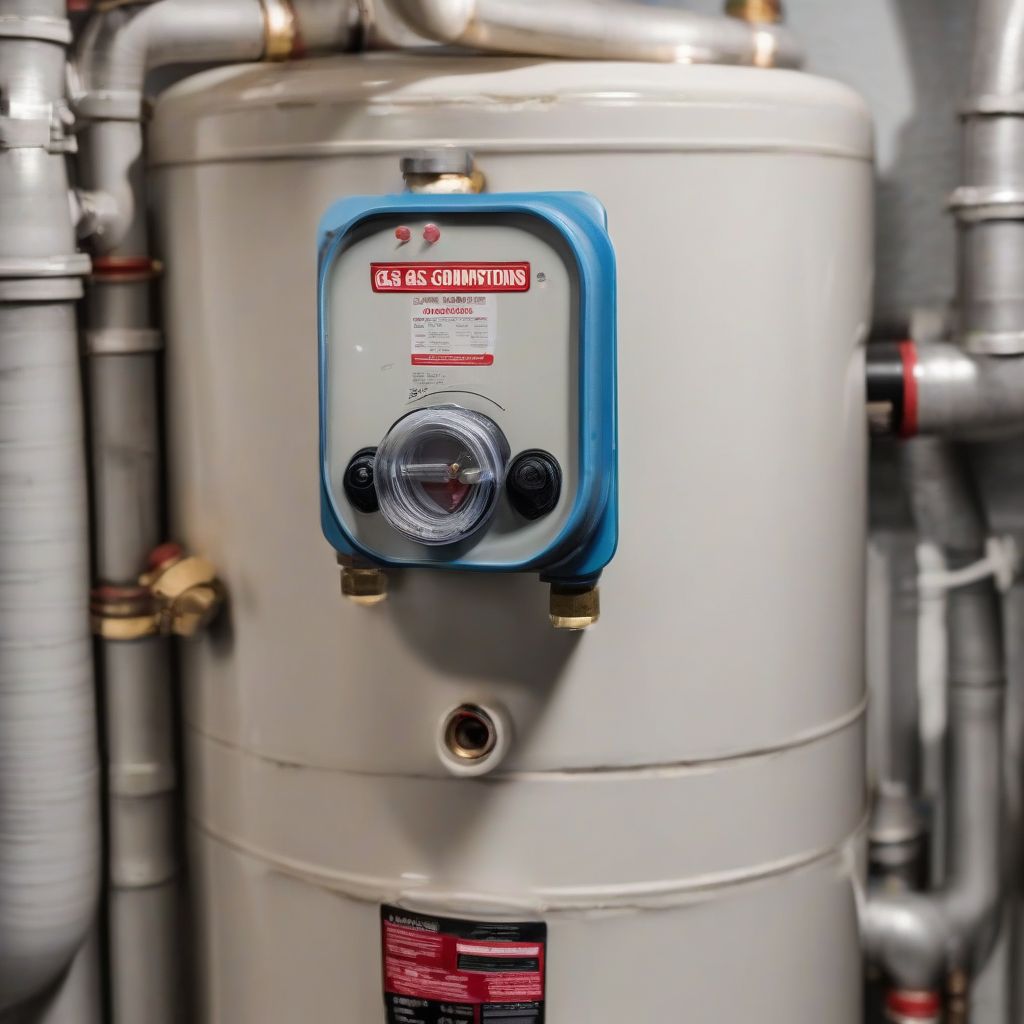Water Heater Leaking Gas: A Potential Silent Danger
Imagine the comforting warmth of a hot shower after a long day, a luxury made possible by your trusty water heater. Now, imagine that same water heater silently leaking gas, posing a serious threat to your safety. A gas leak, often undetectable without proper equipment, can quickly escalate into a dangerous situation. This article delves into the critical issue of a “Water Heater Leaking Gas,” providing you with the knowledge to identify, address, and prevent such a scenario.
Understanding the Risks: Why a Leaky Gas Water Heater is a Serious Concern
Gas water heaters utilize the combustion of natural gas or propane to heat water. While these appliances are generally safe and efficient, a gas leak can have dire consequences. Natural gas and propane are odorless, but a foul-smelling agent, mercaptan, is added to aid in detection.
Here’s why a leaking gas water heater is a cause for immediate action:
- Fire Hazard: The most significant risk associated with a gas leak is the potential for fire or explosion. Even a small spark from an electrical appliance can ignite the gas.
- Carbon Monoxide Poisoning: Incomplete combustion of gas can produce carbon monoxide (CO), a colorless, odorless, and tasteless gas that’s extremely poisonous. CO inhalation can lead to various health issues, including headaches, dizziness, nausea, and even death.
Common Causes of Gas Leaks in Water Heaters
Identifying the source of a gas leak is crucial for effective repair. Here are common culprits:
- Loose or Damaged Gas Connections: Over time, the connections between the gas supply line and the water heater can become loose or corroded, resulting in a leak.
- Faulty Gas Control Valve: The gas control valve regulates the flow of gas to the burner. A malfunctioning valve can cause gas to leak, even when the water heater is off.
- Cracked Heat Exchanger: The heat exchanger transfers heat from the burner to the water. If it cracks, gas can escape into the water tank and potentially into your home.
- Pilot Light Issues: Older water heaters with pilot lights may experience leaks if the pilot light goes out or the thermocouple malfunctions.
 Gas water heater connections
Gas water heater connections
Recognizing a Gas Leak: Signs You Shouldn’t Ignore
While natural gas and propane are odorless, the added mercaptan gives off a distinct “rotten egg” smell. If you detect this odor near your water heater, it’s crucial to act immediately:
- Smell of Gas: The most obvious sign, even a faint odor, warrants immediate attention.
- Hissing or Whistling Sounds: A leaking gas line might produce a hissing or whistling sound.
- Dead or Dying Houseplants: Gas leaks can affect indoor plants, causing them to wilt or die quickly.
- Physical Symptoms: Headaches, dizziness, nausea, and fatigue can indicate carbon monoxide poisoning, a potential consequence of a gas leak.
What to Do If You Suspect a Gas Leak
If you suspect a gas leak from your water heater, follow these steps:
- Evacuate Immediately: Get everyone out of the house immediately. Do not attempt to find the leak yourself.
- Do Not Operate Electrical Switches or Appliances: Avoid creating any sparks that could ignite the gas.
- Call Your Gas Company or 911: Once you are a safe distance from the house, call your gas company or 911 to report the leak.
Preventing Gas Leaks: Proactive Steps for Safety
Preventing a gas leak is always better than dealing with its consequences. Here are preventative measures:
- Regular Maintenance: Schedule annual inspections by a qualified technician to check for leaks, test safety devices, and ensure proper operation.
- Visual Inspection: Periodically inspect your water heater for signs of corrosion, rust, or loose connections.
- Install Carbon Monoxide Detectors: Place CO detectors on every level of your home, especially near sleeping areas.
- Know the Location of the Gas Shut-Off Valve: Familiarize yourself with the location of the main gas shut-off valve and how to turn it off in an emergency.
gas.areview.net/wp-content/uploads/2024/09/gas-leak-detector-66dfda.jpg" alt="Gas leak detector" width="1024" height="1024">Gas leak detector
Replacing an Old or Faulty Water Heater
Water heaters have an expected lifespan of 8-12 years. If your unit is approaching or exceeding this age, consider replacing it before a problem arises.
Conclusion: Prioritizing Safety and Taking Action
A “water heater leaking gas” is a serious issue that demands immediate attention. By understanding the risks, recognizing the signs, and taking proactive steps, you can help ensure the safety of your home and family. Remember, if you ever suspect a gas leak, evacuate immediately and contact your gas company or emergency services.